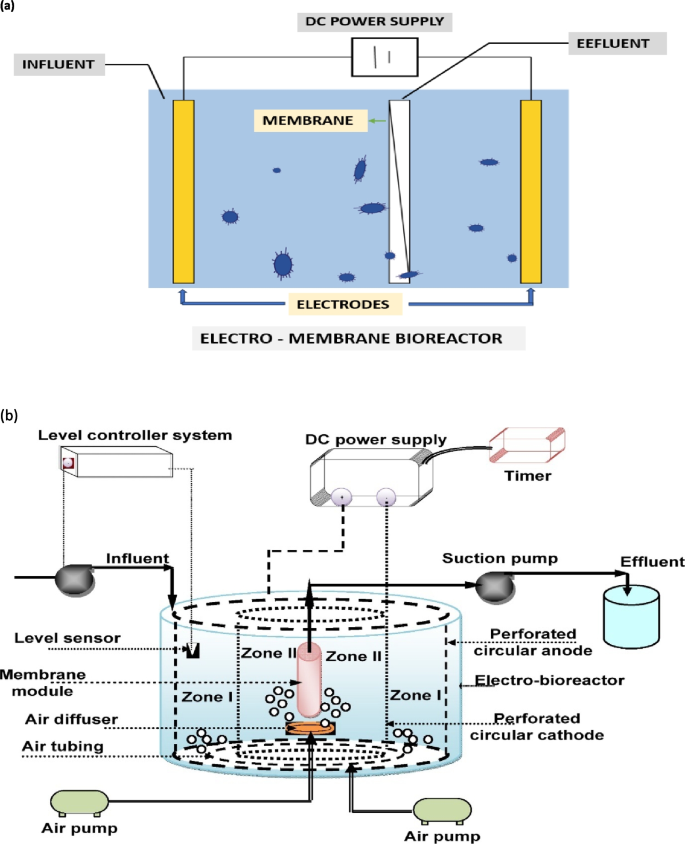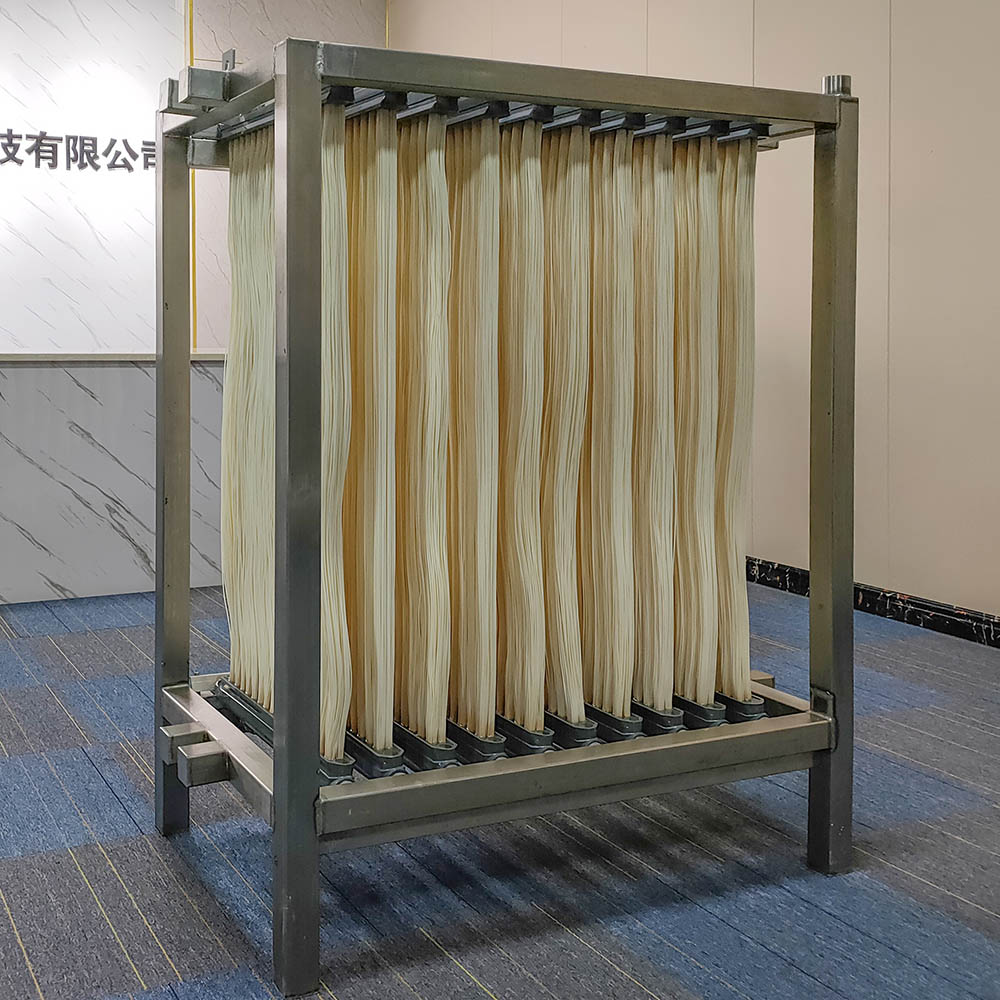Membrane Bioreactor as a Sustainable Solution for High-Volume Wastewater Treatment
Membrane Bioreactor as a Sustainable Solution for High-Volume Wastewater Treatment
Blog Article
The Advantages of Membrane Layer Bioreactors in Sustainable Wastewater Management
Membrane bioreactors (MBRs) stand for a pivotal improvement in lasting wastewater monitoring, efficiently combining organic therapy with innovative membrane filtering modern technology. As the need for lasting options escalates, checking out the diverse benefits of MBRs may reveal unexpected ramifications for the future of wastewater therapy systems.
Review of Membrane Layer Bioreactors
Membrane layer bioreactors (MBRs) represent a considerable improvement in wastewater treatment innovation, incorporating organic deterioration with membrane filtration to improve the efficiency of the therapy procedure. This ingenious system incorporates the advantages of traditional triggered sludge processes with membrane innovation, permitting improved solid-liquid splitting up. MBRs use semi-permeable membrane layers to different treated water from biomass, resulting in high-quality effluent that can be recycled or securely discharged right into the setting.
The functional style of MBRs typically involves a bioreactor where microbes break down raw material, followed by a membrane layer system that filterings system the combined alcohol. This configuration not just reduces the footprint of the treatment facility but also enables greater biomass concentrations and reduced hydraulic retention times. In addition, MBRs can treating a larger series of impurities, consisting of virus and nutrients, making them ideal for numerous applications, from metropolitan wastewater therapy to industrial effluent handling.
The combination of MBRs right into wastewater management systems is indicative of an expanding fad towards lasting and efficient techniques in environmental engineering. Their capability to produce top notch effluent while lessening area demands positions MBR innovation as a key gamer in modern wastewater treatment options.
Improved Effluent High Quality

The membrane layer purification process acts as a physical barrier, making it possible for the retention of microbes and particle matter, which contributes to a clearer and cleaner effluent (Membrane Bioreactor). Moreover, MBRs operate at higher biomass focus than conventional activated sludge systems, advertising extra efficient biodegradation of pollutants. This causes a reduction in biochemical oxygen need (BOD) and complete put on hold solids (TSS) levels in the last effluent
In addition, MBRs demonstrate superb performance in dealing with difficult wastewater structures, such as commercial effluents and wastewater with high nutrient loads. Consequently, the effluent created is usually of better, enabling for more flexible disposal alternatives and reduced ecological influence. Ultimately, the enhanced effluent quality achieved through MBR technology emphasizes its crucial function ahead of time sustainable wastewater management techniques.
Water Reuse Opportunities
The high-quality effluent created by membrane layer bioreactors (MBRs) opens substantial opportunities for water reuse in various applications. MBRs properly get rid of pollutants, including pathogens, put on hold solids, and natural matter, causing treated water that satisfies or goes beyond governing requirements for reuse. This high quality enables the execution of water recycling initiatives throughout diverse fields.
One popular application remains in agriculture, where dealt with wastewater can be used for irrigation, advertising sustainable farming methods while preserving fresh water sources. Furthermore, MBR-treated effluent can be utilized for commercial procedures such as air conditioning, cleaning, and as a procedure water source, dramatically reducing the need for potable water in these operations.
In city settings, MBRs facilitate making use of recovered water for landscape irrigation, toilet flushing, and various other non-potable usages, adding to the total strength of water supply systems. Furthermore, the integration of MBR modern technology in decentralized systems help in managing localized water demands, particularly in water-scarce regions.
Minimized Ecological Influence
Just how can the adoption of membrane bioreactors (MBRs) add to a reduced environmental impact in wastewater management? MBRs considerably improve the treatment efficiency of wastewater while reducing environmental disturbances. By integrating biological treatment processes with membrane purification, MBRs efficiently eliminate a vast range of pollutants, consisting of organic issue, nutrients, and check this site out pathogens. This sophisticated purification leads to higher-quality effluent, which is important for securing marine communities and decreasing the burden on natural water bodies.
Additionally, MBRs run at view it reduced hydraulic retention times contrasted to conventional systems, causing smaller sized therapy plant impacts. This small style decreases land use, thereby preserving natural habitats and biodiversity. The process additionally creates less sludge than conventional approaches, reducing disposal challenges and decreasing greenhouse gas emissions connected with sludge management.
In addition, MBRs assist in the recovery of important resources, such as water and nutrients, adding to a round economic situation. By making it possible for water reuse for irrigation or industrial processes, MBRs aid reduce freshwater deficiency, thus advertising sustainable water use techniques. Ultimately, the fostering of MBR innovation represents a significant stride in the direction of lessening the ecological influence of wastewater administration systems.
Financial Advantages of MBRs

Additionally, MBRs facilitate the production of premium effluent, which can be recycled for numerous applications, such as agricultural irrigation and commercial procedures - Membrane Bioreactor. This reuse ability can substantially decrease water purchase expenses, giving a financial motivation for industries dealing with rigid water guidelines
The portable layout of MBR systems additionally leads to minimized land needs, which is particularly valuable in city locations where real estate is pricey. By lessening area, districts and sectors can save on check it out land acquisition and maintenance costs.
In addition, MBRs usually call for much less frequent maintenance and have a longer lifespan than traditional systems, further contributing to set you back financial savings. In recap, the financial advantages of MBRs-- ranging from decreased functional expenses to land savings and effluent reuse-- make them an engaging selection for lasting wastewater administration, using both long-lasting and instant financial advantages.
Conclusion
Membrane bioreactors stand for a transformative strategy to sustainable wastewater administration, combining organic treatment with sophisticated membrane layer purification for superior effluent top quality. Their capability for effective pollutant elimination assists in water reuse, therefore saving important freshwater sources. Additionally, MBRs contribute to minimized environmental effects via compact styles and reduced sludge generation. Economic advantages better improve their practicality, making MBRs an encouraging remedy for attending to the obstacles of wastewater therapy and promoting sustainable source management.
Membrane layer bioreactors (MBRs) represent a critical innovation in sustainable wastewater management, properly combining organic therapy with sophisticated membrane filtering technology.Membrane bioreactors (MBRs) represent a substantial advancement in wastewater therapy innovation, incorporating biological deterioration with membrane layer filtering to enhance the performance of the therapy process.Accomplishing improved effluent quality is one of the most significant advantages of utilizing membrane layer bioreactors (MBRs) in wastewater treatment.Additionally, MBRs demonstrate excellent efficiency in treating tough wastewater structures, such as industrial effluents and wastewater with high nutrient tons.Integrating membrane layer bioreactors (MBRs) into wastewater management not just decreases ecological effect but likewise offers significant economic benefits.
Report this page